All states in the US have either at-fault or no-fault policies when determining injury cases. In no-fault states, the liability is determined according to the degree of fault of each party. However, in no-fault states, compensation is granted to the injured party regardless of the degree of fault in the accident. Is Missouri a no-fault state or an at-fault accident state? Our blog clarifies this for car accident victims seeking legal help. At Royce Injury Lawyers, we have experienced car accident lawyers to answer your queries about how the no-fault vs. at-fault injury cases work.
Is Missouri Classified as a No-Fault State in Car Accident Cases?
Is Missouri a no fault insurance state among the group of states that determine liability in injury cases based on fault? The answer is no. Missouri is one of the at-fault states, which means that if an accident happens, both or all parties will be liable to the degree of their contributory negligence in the accident. For example, if you have failed to follow traffic rules and your car collides with a drunk driver, the liability of the drunk driver will be greater than yours; however, the compensation you are entitled to will reduce to the extent of your own violation of observing precautionary measures while driving.
Understanding the Distinction Between No-Fault and At-Fault States
It is crucial to understand that it is a legal requirement in Missouri for all drivers to have accident insurance coverage. This coverage is used to pay compensation claims in the event of an accident. In a no-fault-based system, every driver in the accident is compensated for their own damages i.e., medical bills, property damage, expenses, etc, without divulging into the complexities of establishing liability. The insurance company of the respective driver covers these expenses to provide prompt financial assistance. However, in an at-fault system, the issue of liability is addressed first. After liability is determined, the at-fault party pays compensation to all other parties affected in the accident. At-fault claims are challenging to tackle, especially in a Missouri no-fault state car accident.
Missouri’s At-Fault System Explained
Missouri is an at-fault state. Missouri at fault state system involves the determination of the degree of contributory negligence of each driver in the accident. The damages incurred by both parties are considered along with their fault in the accident. Parties are also to consider what type of damages they can claim, so it is essential to consult an experienced attorney.
Missouri’s Car Accident Fault Determination Laws
Under the regulatory process in Missouri, any person who has suffered an injury that was not their fault can claim both financial and non-financial damages from the other party. Such damages depend on the circumstances and factors of the accident, and the insurance company of the at-fault party pays for damages such as medical expenses, property damage, wage loss, etc. If you have suffered both types of damages and are not sure if is Missouri a no fault auto insurance state or not, it is good to consult our lawyers.
Missouri Insurance Options: No-Fault or Fault-Based?
The insurance options in Missouri are limited to an at-fault-based system. Therefore, as a driver in Missouri, you are legally required to have insurance coverage so that the damages can be recovered if an accident happens. However, in some cases, the accident is so severe that the at-fault driver’s insurance coverage cannot cover the compensation amount, and the injured party has the option to file an injury lawsuit.
Missouri’s Auto Insurance Requirements Explained
Is Missouri a no-fault accident state? A quick glance at the framework of the insurance system will clarify that the answer is no. Every insurance company has its own policy, requirements, and coverage limit. For injuries and property damage, the minimum required coverage in Missouri for insured vehicles ranges between $25,000 to $50,000. A similar requirement is also in place for motorcyclists.
The Influence of Comparative Fault on Missouri Car Accidents
Comparative fault impacts the overall compensation amount you will be paid in an accident claim. Missouri’s pure comparative fault framework compels a reduction in the amount of compensation in proportion to your contributory negligence in the accident. For example, for your 30% fault in the accident, an equal percentage is deducted from the total amount before making the payment to you.
How Uninsured At-Fault Drivers Impact Accident Claims
If there is an underinsured or uninsured driver as a party who caused an accident, the compensation issue can be challenging. Uninsured drivers do not have the coverage to pay damages and underinsured drivers lack enough coverage to satisfy the compensation claim. To avoid such situations, Missouri uninsured motorist coverage is encouraged under Missouri law. In such an event, your own insurance company can pay for uninsured or underinsured coverage.
The Influence of At-Fault Insurance in Car Accident Claims
Liability insurance is a prerequisite in Missouri for all drivers. The requirement is in place to cover damages that you, as a driver in Missouri, might incur in the event of an accident. At-fault insurance has the potential implication of reduced compensation amount to the extent of your contributory fault in the accident. Therefore, the paid damages are always less than the total amount in the at-fault insurance system.
The Ways Our Attorneys Can Assist You
Our expert injury attorneys can help you to:
- Navigate the liability challenges
- Negotiate with the insurance company to settle a favorable compensation
- Identify the compensation amount and the types of damages you are entitled to claim in your accident case
- Provide legal representation to you in a lawsuit if negotiations with the insurance company fail or the at-fault party is uninsured or has an underinsured coverage.
- Compliance with legal requirements i.e., drafting claim, following court proceedings, furnishing necessary evidence, contacting police, etc
- Providing timely and concise legal advice to help you win the compensation you deserve.
Conclusion
In a nutshell, if you don’t know if is Missouri an at fault state or you are an at-fault driver, there are some insurance regulations you must comply with, and Royce Injury Lawyers are here to help you educate on these important questions!
- Key Facts About Missouri’s No Pay No Play Law - 28th May 2025
- Understanding Taxes on Personal Injury Settlements - 23rd May 2025
- Navigating Your Rights After a Car Crash While Pregnant - 21st May 2025


